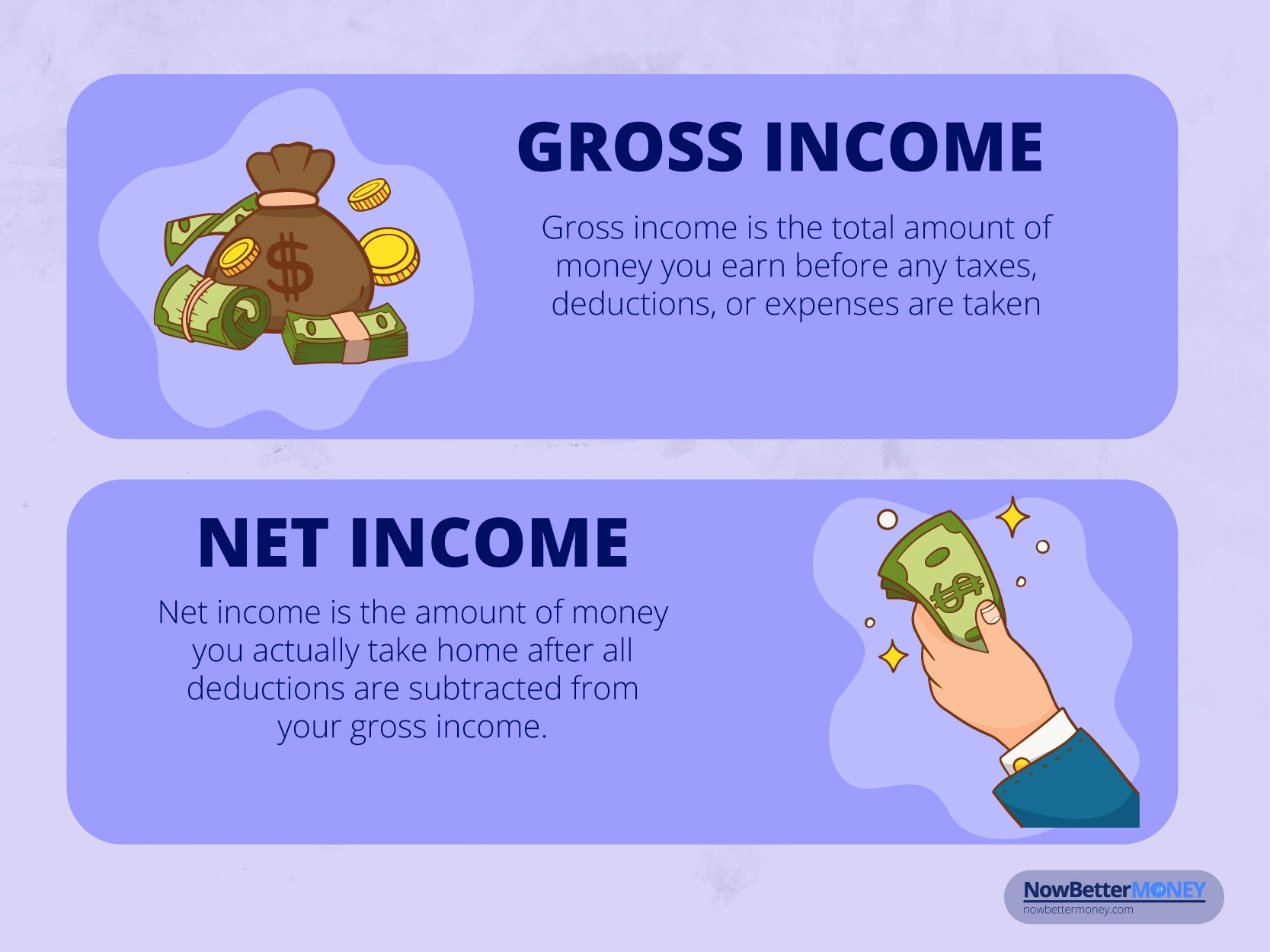What is Gross and Net Income
Most people always get confuse between gross and net income – they always wonder why the amount in their bank account is lower than amount in their paycheck (which one is gross income and which one is net income) and this confusing cause them make mistake in budgeting since their first step.
In this blog, you will discover the difference between gross and net income, and understand clearly about how to calculation them correctly.
What is Gross Income
Gross income is the total amount of money you earn before any taxes, deductions, or expenses are taken out. It’s your full earnings on paper—what your employer or clients agree to pay you. Many people see their gross income listed on their job offer letter, contract, or at the top of their pay stub, but it’s not the amount you actually take home.
How to Calculate Gross Income
Gross income is the total amount of money you earn before anything is taken out. The way you calculate it depends on how you earn money:
For Salaried Employees
For Hourly Workers
For Freelancers or Business Owners
However, knowing your gross income is just the first step. To manage your personal finances wisely, you also need to understand what’s left after taxes and other costs are taken out—which is your net income, and we’ll explore that next.
What Is Net Income?
Net income is the amount of money you actually take home after all deductions are subtracted from your gross income. It’s often called take-home pay because it’s what ends up in your bank account after taxes, retirement contributions, health insurance, and other expenses are removed.
How to Calculate Net Income
Net income is what’s left after all deductions or expenses are subtracted from your gross income. It’s your real take-home pay.
For Employees
For Freelancers or Business Owners

How to Use Them in Your Financial Planning
Knowing the difference between gross and net income isn’t just a financial term you should memorize—it directly affects how you manage your money, make financial decisions, and plan for the future. Misunderstanding these two numbers can lead to budgeting mistakes, unexpected shortfalls, or even long-term debt.
1. Budgeting Becomes Realistic
If you make a budget using your gross income, you might assume you have more money than you actually do. For example, if you earn $4,000 per month in gross income but only take home $3,000 in net income, that $1,000 difference can throw off your entire budget. Only your net income reflects what’s actually available for expenses, savings, and spending.
2. Debt Management and Loan Applications
Banks and lenders usually look at your gross income when you apply for loans, credit cards, or a mortgage. While this helps them determine how much you can borrow, you need to make sure the monthly payments fit within your net income. Just because you’re approved doesn’t mean the loan is affordable. Knowing your net income helps you avoid overborrowing and falling into debt.
3. Planning Taxes and Business Expenses
If you’re self-employed, your gross income helps you estimate how much tax you’ll owe and how much you should save for quarterly tax payments. Your net income helps you evaluate how sustainable your business is and whether your earnings cover your personal and business needs.
4. Using Gross Income for Big Decisions
Use your gross income when:

NowBetterMONEY, where is a hub shares practical tips on budgeting, saving, and debt management. I uses a personal finance tracker to monitor spending and savings, helping readers take control of their finances and build long-term financial stability with simple, actionable strategies. Author Bio


